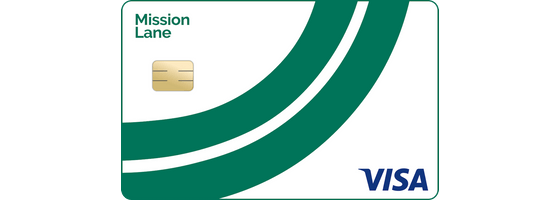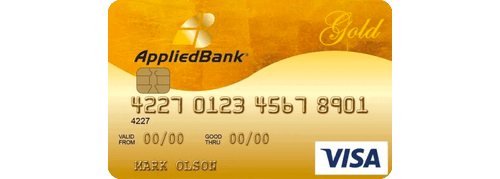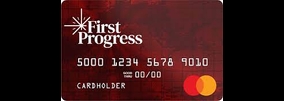- Easy to qualify for
- No security deposit required
- Automatic credit line reviews
- Get prequalified online
Our evaluations and opinions are not influenced by our advertising relationships, but we may earn a commission from our partners’ links. This content is created independently from TIME’s editorial staff. Learn more about it.
If you have a limited credit history, no credit at all, or damaged credit due to mistakes you made in the past, there are ways to turn your situation around. That said, building credit can be a challenge when your current standing prevents you from getting the best credit cards or a loan approved in your name.
That's where credit cards for building credit come into play. While the best rewards and travel credit cards are for people with good-to-excellent credit, credit-building cards are for individuals with no credit history at all or issues with their credit they are trying to fix. Some credit cards for credit-building are secured, meaning they require a cash deposit as collateral to get started. There are also unsecured cards for building credit, though they typically require either a fair credit score or better (a FICO score of 580+) or some kind of fee to begin the process.
As you look for ways to build the credit you need to qualify for a loan, such as a mortgage—or get one of the best credit cards—consider this list of credit-building cards that can get you on the right track.
Best credit cards for building credit: Summary
- Best for no security deposit: Mission Lane Visa® Credit Card
- Best for Chase banking customers: card_name
- Best for low APR: Applied Bank Secured Visa® Gold Preferred® Credit Card
- Best secured card with rewards: card_name
- Best for low security deposit: card_name
- Best for fair credit: card_name
- Best for fast processing: First Progress Platinum Elite Mastercard® Secured Credit Card
- Best for no credit check: OpenSky® Secured Visa® Credit Card
- Best for credit-building: Citi® Secured Mastercard® Credit Card
Why we recommend these cards to build credit
Best for no security deposit: Mission Lane Visa® Credit Card

Mission Lane® Visa Credit Card
Mission Lane® Visa Credit Card
Why we like it: The Mission Lane Visa® Credit Card lets people with very limited credit begin building credit for the future, and there's no security deposit required. Cardholders can even check to see if they're prequalified online without a hard inquiry on their credit reports, which can help them gauge their approval odds.
The Mission Lane Visa® Credit Card also comes with automatic credit line reviews, which means those who start with a very low credit limit can work toward a higher spending limit with responsible use. That said, potential applicants should know this card charges an annual fee of $0 to $59, and you won't know the annual fee you qualify for until after you apply.
Pros:
Cons:
- Annual fee can apply
- High variable APR
- No rewards for spending
Learn more on our full review here.
Best for Chase banking customers: card_name
Chase Freedom® Rise™
Why we like it:
Why we like it: The card_name has a lot going for it, including its lack of an annual fee and the fact that it earns 1.5% cash back on all purchases (and 5% cash back on Lyft rides through March 2025). It's also a credit-building card that's geared to people with limited credit history, yet Chase says consumers who already have a bank account with Chase with at least $250 on deposit have better odds of being approved.
Cardholders can also get a $25 cash bonus for enrolling in automatic payments, and benefits like purchase protection, extended warranties, and trip cancellation and interruption insurance are included at no cost. Chase also says it's possible to be approved for a higher credit limit in as little as six months with responsible use.
Pros:
- Unsecured card with no security deposit requirement
- Earns 1.5% cash back
- No annual fee
- Bonus for enrolling in auto-pay
- Travel and consumer protections included
- Reports to the credit bureaus
- Automatic credit line reviews
Cons:
- High variable APR
- Charges foreign transaction fees
- Better approval odds for Chase banking customers
Best for low APR: Applied Bank Secured Visa® Gold Preferred® Credit Card

Applied Bank® Secured Visa® Gold Preferred® Credit Card
Applied Bank® Secured Visa® Gold Preferred® Credit Card
Why we like it: Applied Bank Secured Visa® Gold Preferred® Credit Card is secured, meaning you have to put down a refundable cash deposit as collateral. However, the card is easy to be approved for as a result. Better yet, it features a low variable annual percentage yield (APR) of reg_apr,reg_apr_type.
This card does require a annual_fees annual fee, but you don't have to go through a credit check to get approved. You can also secure a line of credit between $200 and $5,000 based on your initial security deposit amount.
Pros:
- Low variable APR of reg_apr,reg_apr_type
- No credit check to apply
- Reports to the three credit bureaus
- No monthly fees required
Cons:
- Minimum security deposit of $200 required
- annual_fees annual fee
- $30 additional card fee
- foreign_transaction_fee foreign transaction fee
- No option to upgrade to an unsecured card with responsible use
- You don't earn rewards
Best secured card with rewards: card_name
Why we like it: There's a lot to like about the card_name, including the fact that it offers 1.5% cash back on all purchases with annual_fees annual fee required. This card is secured as well, meaning you have to put down a deposit (at least $200) as collateral. However, you can qualify for a credit limit increase in as little as six months with responsible use, and you may even be asked to upgrade to an unsecured version of the card.
This secured card is geared to individuals with fair credit, so you have to have some credit history and may need a credit score of at least credit_score_needed to be approved.
Pros:
- Earns 1.5% cash back rewards on every purchase
- Automatic credit line reviews in as little as six months
- annual_fees annual fee
- No hidden fees
- See if you're pre-approved with no impact on your credit
- Reports to the three credit bureaus
Cons:
- Minimum security deposit of $200 required
- Fair credit required
- High APR if you carry a balance
Best for low security deposit: card_name
Why we like it: We like the card_name because it's geared to consumers who are rebuilding credit. Capital One defines this credit designation as someone who has defaulted on a loan more than once or has been denied a credit card in the last few months.
This means it’s easy to get approved for the card_name. We also like the fact this card's initial security deposit can be as low as $49, even though the minimum credit limit starts at $200.
Pros:
- Get approved with poor credit
- Security deposit may be as low as $49
- Automatic credit line reviews in as little as six months with responsible use
- annual_fees annual fee
- No hidden fees
- Check for pre-approval with no impact on your credit
- Reports to the three credit bureaus
Cons:
- High APR if you carry a balance
- No rewards available
Learn more on or full review here.
Best for fair credit: card_name
Why we like it: The card_name is an unsecured credit card geared to people with fair credit. We like it because it earns 1.5% cash back for all purchases and helps build credit over time.
This card doesn't charge any hidden fees, and it even includes a six month Uber One membership. While the initial credit limit may be low to start, Capital One says it reviews credit lines after six months to see if customers are eligible for a higher limit.
Pros:
- Earns 1.5% cash back rewards on every purchase
- Automatic credit line reviews in as little as six months
- No hidden fees
- See if you're pre-approved with no credit score impact
- Reports to the three credit bureaus
Cons:
- annual_fees annual fee
- Fair credit required
- High APR if you carry a balance
Learn more on our full review here.
Best for fast processing: First Progress Platinum Elite Mastercard® Secured Credit Card

First Progress Platinum Elite Mastercard® Secured Credit Card
First Progress Platinum Elite Mastercard® Secured Credit Card
Why we like it: We chose the First Progress Platinum Elite Mastercard® Secured Credit Card because it promises fast processing with no credit check required. You can apply online in a matter of minutes, and the bank says its new expedited processing helps you get your card in your hands more quickly.
This secured card is available to consumers with poor credit. It's secured with a minimum refundable deposit of $200. First Progress also notes that you may be able to get approved for this card with credit issues of any kind, including a recent bankruptcy discharge.
Pros:
- Fast and easy approvals and processing
- No credit check required
- No hidden fees
- Reports to the three credit bureaus
Cons:
- Minimum security deposit of $200 required
- $29 annual fee
- High APR if you carry a balance
- No option to upgrade to an unsecured card
- No rewards
Best for no credit check: OpenSky® Secured Visa® Credit Card

OpenSky® Secured Visa® Credit Card
OpenSky® Secured Visa® Credit Card
Why we like it: The OpenSky® Secured Visa® Credit Card made our list of best credit-building cards because it doesn't require a credit check of any kind. Because of this, the card issuer advertises an average approval rate of 87%. The OpenSky® Secured Visa® Credit Card now allow customers to earn up to 10% cash back on purchases at over 40,000 retailers.
It's a secured credit card, so a minimum security deposit of $200 is required to get started. From there, the OpenSky® Secured Visa® Credit Card reports your credit balances and payments to the credit bureaus to help build out your credit profile and improve your score.
Pros:
- No credit check required
- No hidden fees
- See if you're pre-approved with no credit score impact
- Reports to the three credit bureaus
- Earn up to 10% cash back on purchases at over 40,000 retailers
Cons:
- Minimum security deposit of $200 required
- $35 annual fee
- High APR if you carry a balance
- No option to upgrade to an unsecured card over time
- Charges 3% foreign transaction fees
- No rewards
Learn more on our full review here.
Best for credit-building: Citi® Secured Mastercard® Credit Card

Citi® Secured Mastercard® Credit Card
Citi® Secured Mastercard® Credit Card
Why we like it: The Citi® Secured Mastercard® Credit Card is a no-frills credit card for building credit. This card requires a minimum security deposit to begin building credit, although there is no annual fee to worry about. Citi will report your payments to the three credit bureaus over time, which helps build credit for the future.
There is a required security deposit ranging from $200 to $2,500, and this amount becomes your initial credit limit. Citi also lets customers pick their own payment due date so it aligns well with their monthly budget and other required bills.
Pros:
- No annual fee
- No hidden fees
- Free FICO score each month
- Builds credit by reporting to the three credit bureaus
Cons:
- Minimum security deposit of $200 required
- Variable APR can make carrying a balance costly
- No rewards to earn
Best credit cards for building credit comparison chart
| Credit Card | Best for | Annual fee | Minimum credit required |
|---|---|---|---|
Best for no security deposit | annual_fees | credit_score_needed | |
Low APR | annual_fees | credit_score_needed | |
Secured card with rewards | annual_fees | credit_score_needed | |
Low security deposit | annual_fees | credit_score_needed | |
Fair credit | annual_fees | credit_score_needed | |
Fast processing | $29 | Poor/Limited/No Credit | |
No credit check | annual_fees | credit_score_needed | |
Credit-building | $0 | Fair, Good |
Our Methodology
To select the best credit cards for building credit, we compared more than 60 credit cards geared to consumers with imperfect credit scores or beginners with no credit history at all. Factors we compared across card products include annual fees, monthly fees, program fees, interest rates, and rewards programs (if applicable).
While some of the credit-building cards in our ranking do charge fees, we also considered the approval odds for applicants and their ability to begin building credit with the product. We also looked at the application process for each card, security deposit requirements, and added features such as free credit scores or the ability to select one's payment due date.
How to choose the best credit card to build credit for you
The credit-building cards on our list have quite a few overlapping features, but their deposit requirements, fees, and rewards programs vary widely. To find the best cards from this list for your personal needs and goals, consider the following tips:
- Consider fees carefully. Some of the cards we profiled charge annual fees or program fees, and a handful even charge monthly maintenance fees after the first year. If you're going to pay fees to get a credit card for the purpose of building credit, make sure you're getting some added perks or features in return.
- Decide if you want to earn rewards. Not all credit-building cards earn rewards, but some of them do. With that in mind, you'll want to decide whether earning cash back is a priority, or if you would rather focus on building credit without any distractions.
- Choose between secured and unsecured options. Also decide whether you are willing to put down a refundable cash deposit as collateral in order to build credit. If you are, you get to choose from a broader range of credit-building cards with fewer ongoing fees.
- Check for credit-building tools. Finally, see if cards you're interested in offer perks such as a free credit score, credit-tracking tools, or a mobile app that can help you oversee your credit progress in real time.
TIME Stamp: Credit-building cards can help brighten your financial future
Having poor credit or limited credit can make it difficult to improve your quality of life—in more ways than one. You may have trouble getting a mortgage or qualifying for an apartment on your own with poor credit, and it can be just as difficult to get approved for other types of financing without a cosigner.
By improving your credit score with a credit card, you have the chance to work toward the future you really want. The credit-building cards in our ranking may be imperfect, but they can help you start the process when other cards won't.
Frequently asked questions (FAQ)
How do I use a credit card to build credit?
Once you are approved for a credit card, you can begin using it for purchases each month. However, you'll need to use your card wisely and treat your credit with care in order to get the best results.
You can start by paying your credit card bill on time (or early) every month and keeping your revolving debt at a minimum. For example, most experts suggest keeping your credit utilization below 30% of your available credit limits for the best results.
What are the pros and cons of credit cards to build credit?
Using a credit card to build credit can be a major help when you use your card wisely. After all, credit cards report your payments to the three credit bureaus. Regular, on-time payments will help build your credit profile and add depth to your credit history over time.
The disadvantages of using credit cards to build credit can include temptation to overspend, various fees they can charge, and high interest rates if you carry a balance from one month to the next.
What are the different types of credit cards to build credit?
There are two main types of credit cards you can use to build credit—secured credit cards and unsecured credit cards. Where secured credit cards require a refundable cash deposit as collateral, unsecured credit cards do not have this requirement.
What are the different ways to build credit without a credit card?
If you're leery about building credit with a credit card, there are other options to consider. For example, you can use a free app such as Experian Boost to build credit with regular bills you pay, including regular subscription services and utility payments.
You can also look into credit-builder loans. This type of loan has you make monthly payments into a savings account or certificate of deposit (CD) in your name, and the payments are reported to the credit bureaus to help you build credit along the way. Once you make the final payment on a credit-builder loan, you get the amount you paid in back minus a small amount charged in interest and fees.
Are there any specific credit cards that report to all credit bureaus?
All types of credit cards typically report to the credit bureaus, including rewards credit cards, Visa and Mastercard credit cards, American Express credit cards, and bad-credit credit cards. If you want a credit card for the purpose of building credit, make sure the cards you're considering offer this benefit.
What is the recommended credit utilization ratio for building credit?
Most experts recommend keeping your credit utilization ratio below 30% if you want to build or maintain a healthy credit score. For example, this means never carrying more than $900 in debt for every $3,000 in credit limits you have, and no more than $300 in debt if your credit limits are $1,000.
Many of the offers that appear on this site are from companies from which TIME Stamped receives compensation. This compensation may impact how and where products appear (including, for example, the order in which they appear). TIME Stamped provides a variety of offers, but these offers do not include all financial services companies or all products available.
The editorial content on this page (including, but not limited to, Pros andCons) is not provided by any credit card issuer. Any opinions, analysis, reviews, or recommendations expressed here are the author’s alone, not those of any credit card issuer, and have not been reviewed, approved or otherwise endorsed by any credit card issuer.
The information presented here is created independently from the TIME editorial staff. To learn more, see our About page.

